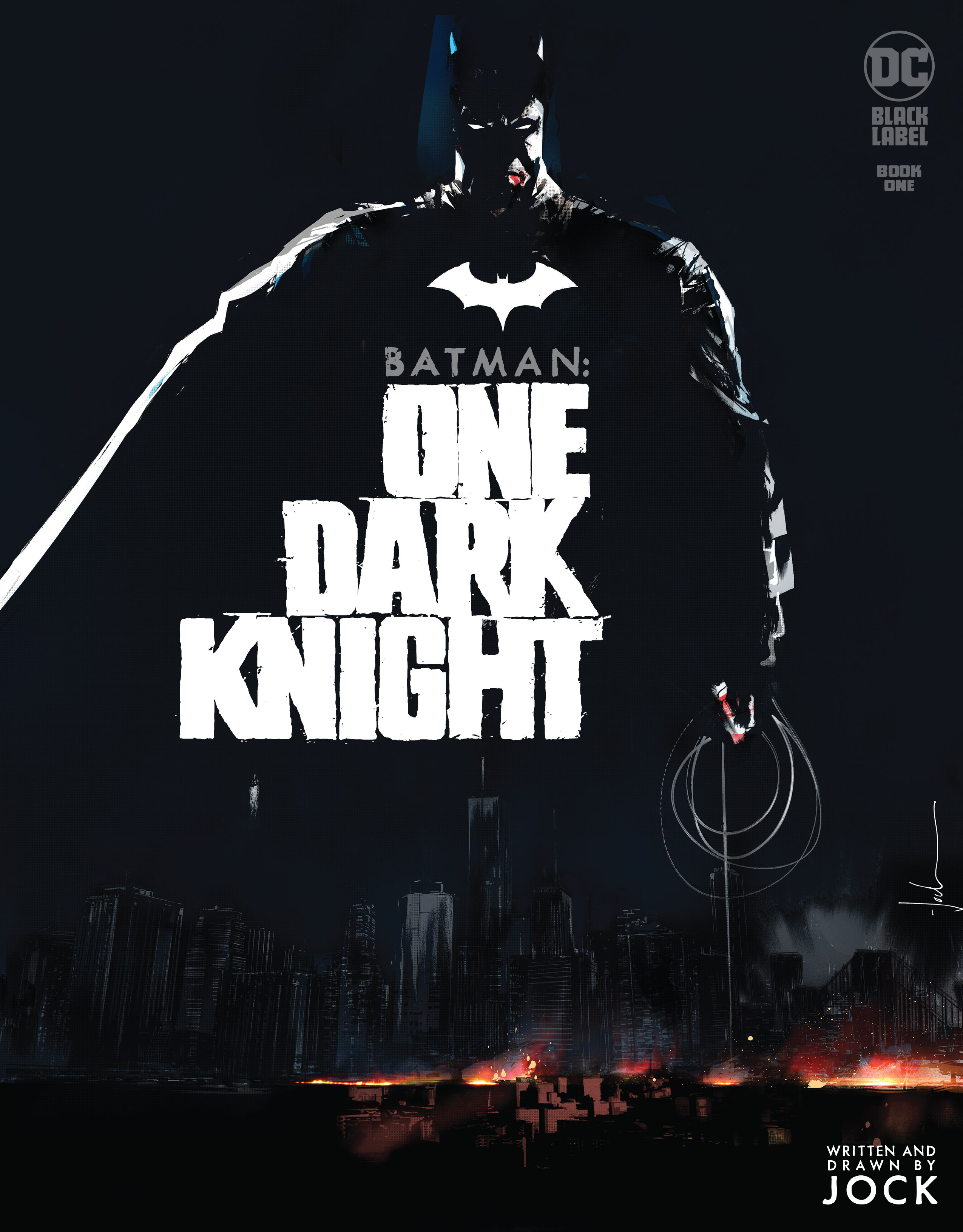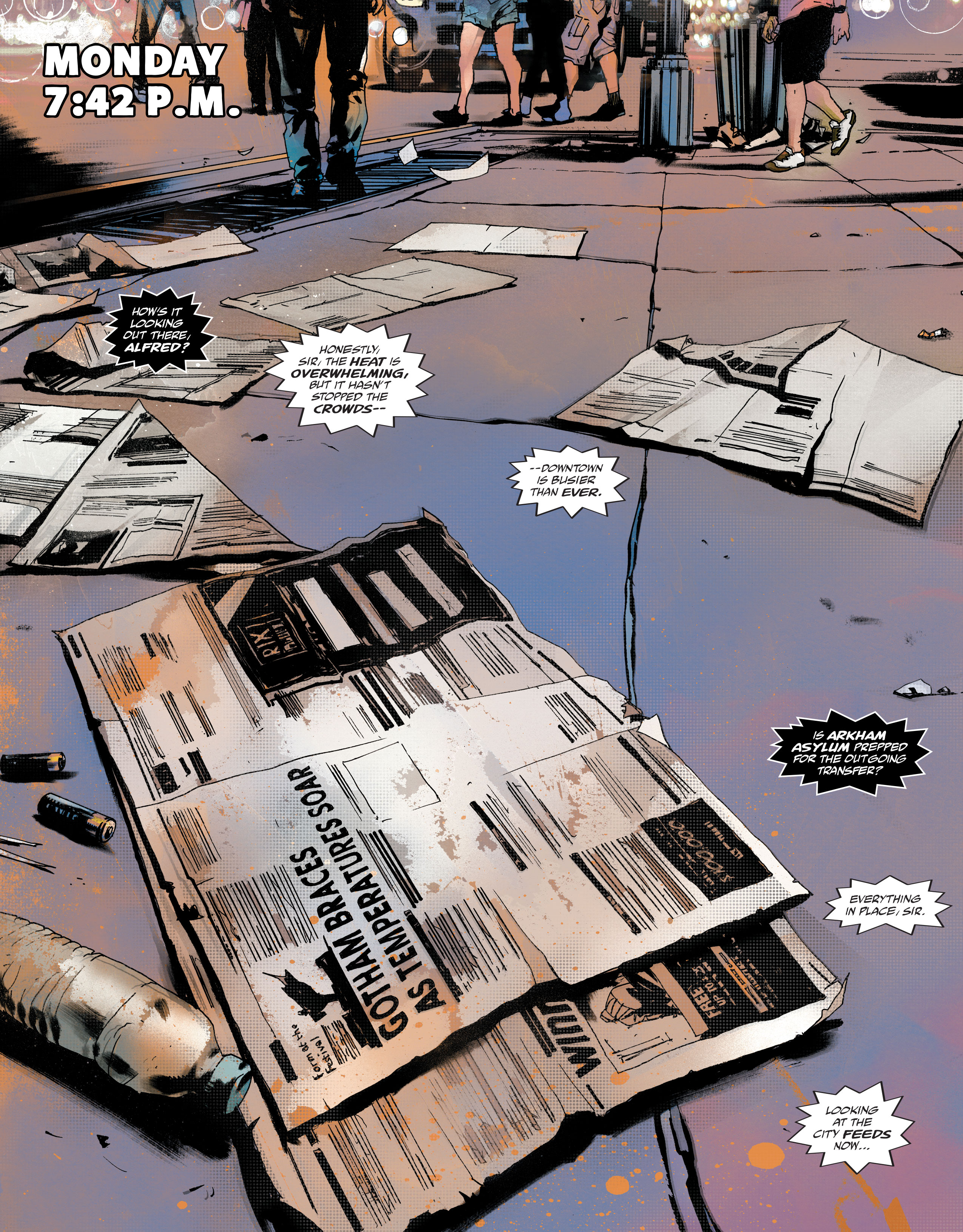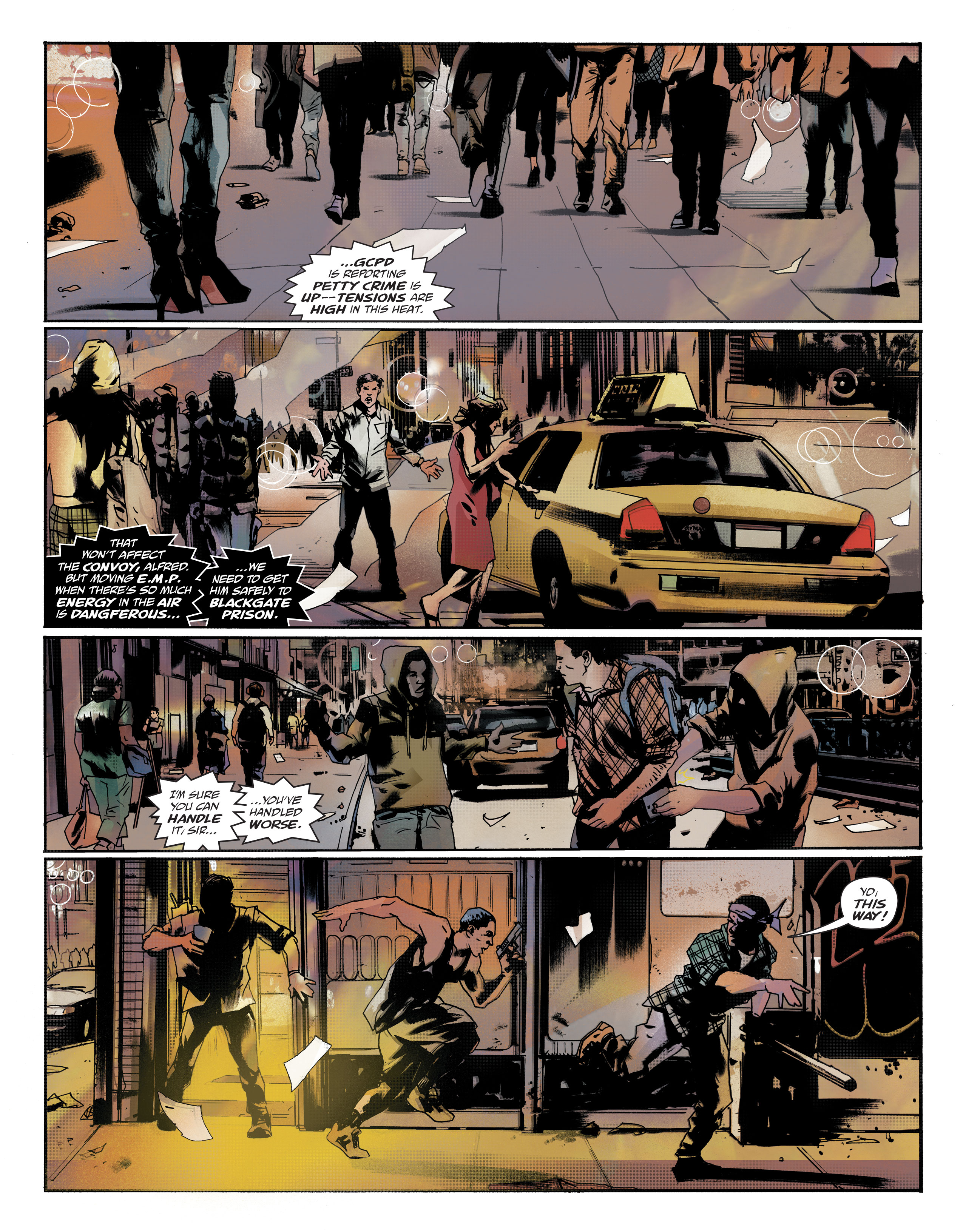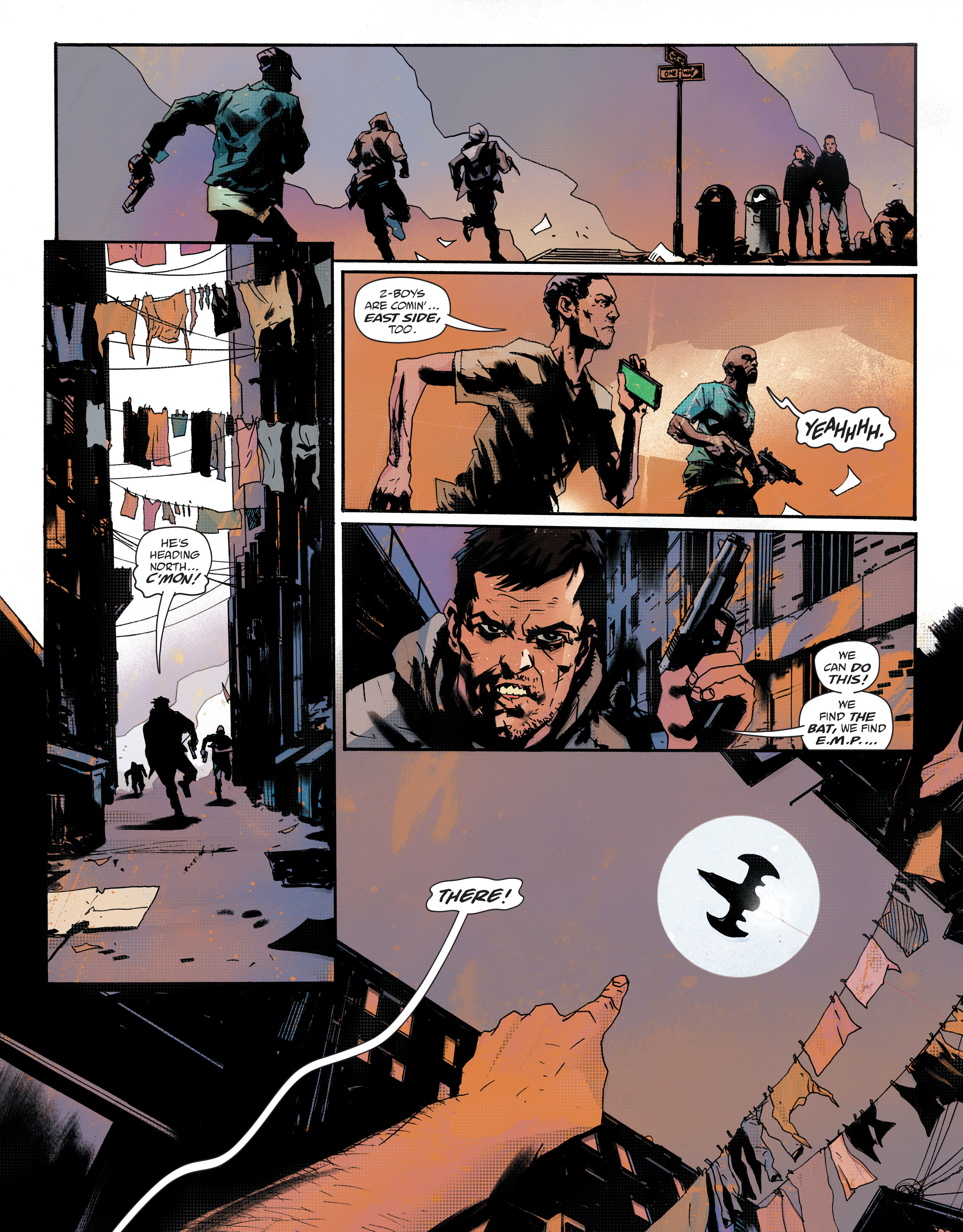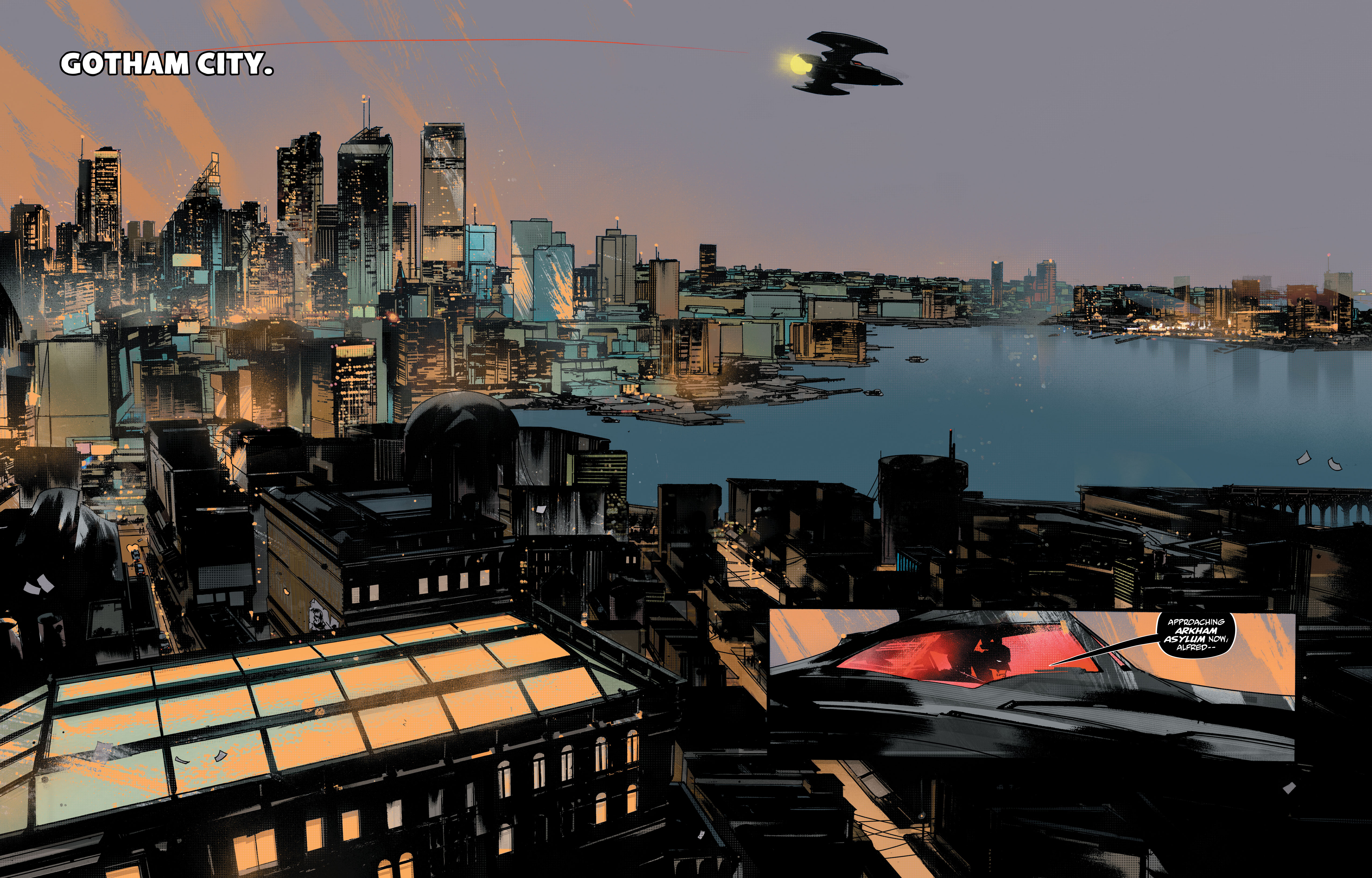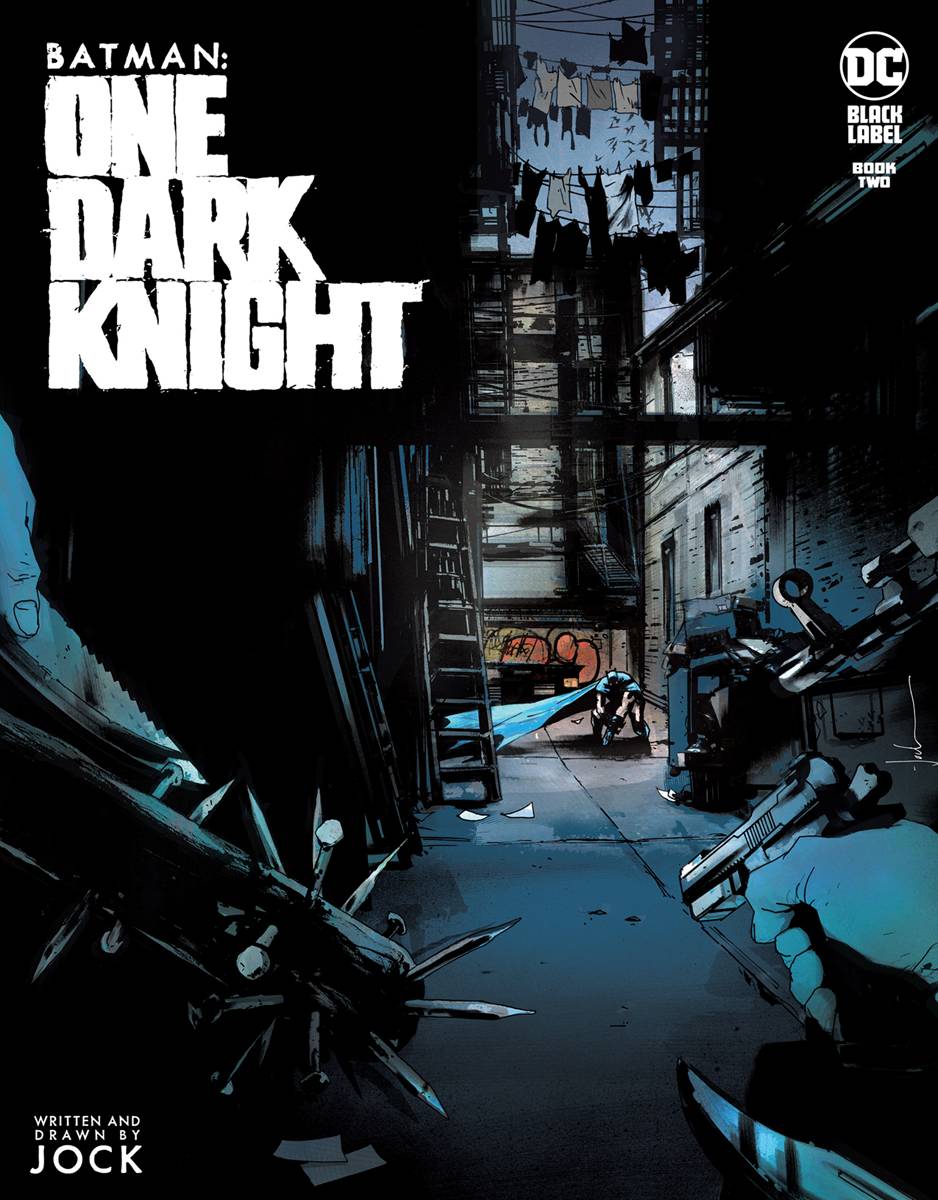Batman rediscovers he works best in the dark with One Dark Knight
Batman - One Dark Knight is "violent, hard-hitting" like classic '70s cinema according to artist/writer Jock
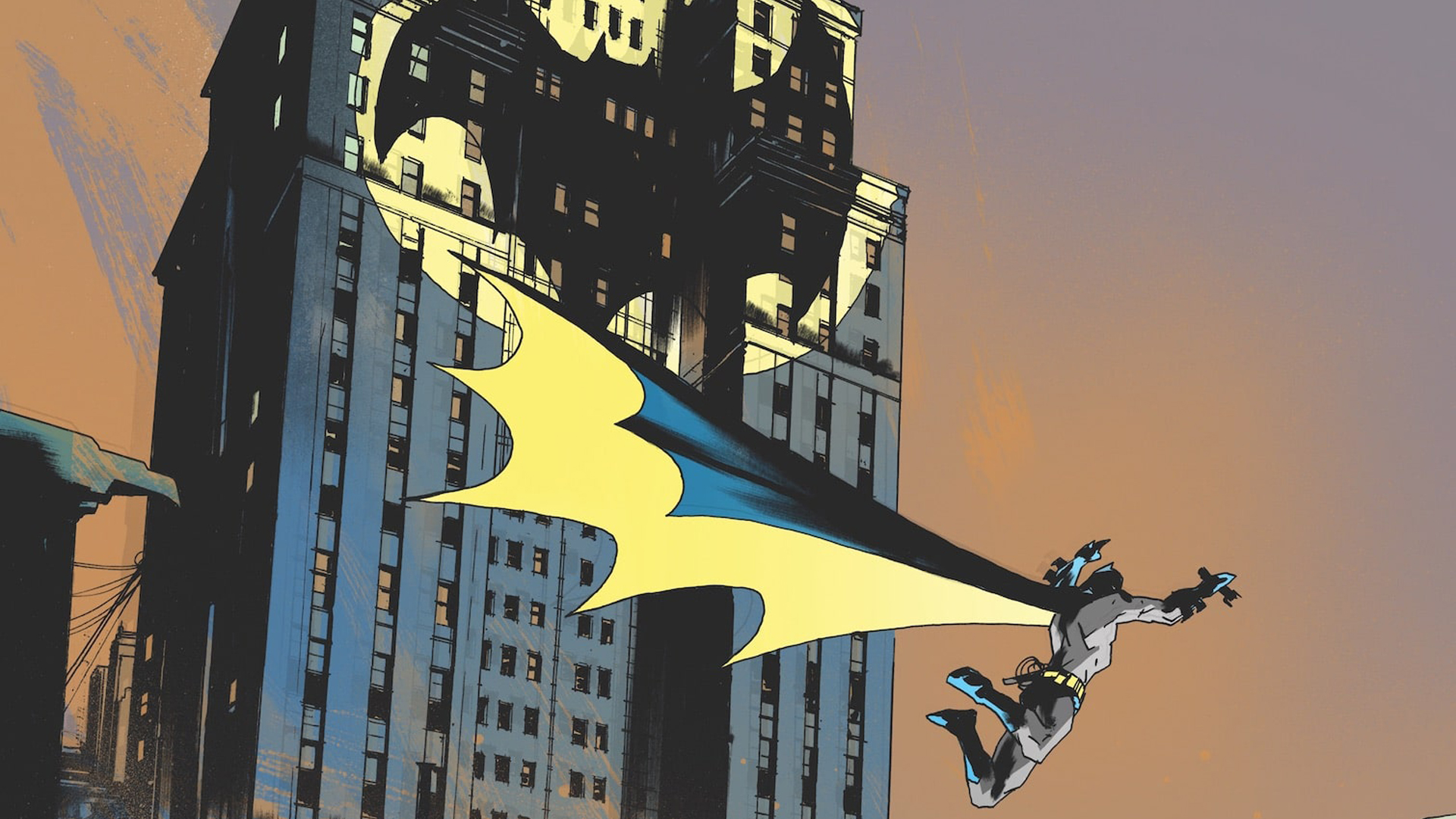
Batman will rediscover his rough-knuckle roots in Jock's upcoming Batman: One Dark Knight series, which debuts December 21. And in doing so, he'll remind himself - and readers too - why they call him the 'Dark Knight.'
In this 'Prestige Plus' format DC book (intended for adults 17 and older), artist/writer Jock transitions from being best known as the artist of Batman's 'Black Mirror' arc and the Batman Who Laughs limited series to being an auteur storyteller all on his own. In Batman: One Dark Knight, Jock strips Bruce Wayne down to his bare essentials - his bare-knuckles, even - to remind him where he came from, and what kind of hero he still is beneath the high-tech gadgets and mystique he's built over the years.
Newsarama spoke with Jock ahead of the release of Batman: One Dark Knight, to get a sense of who he is as a Batman writer, which parts of his story he's most excited to draw, and what he sees as the quintessential elements of DC's Dark Knight.
Newsarama: Jock, who is Batman to you?
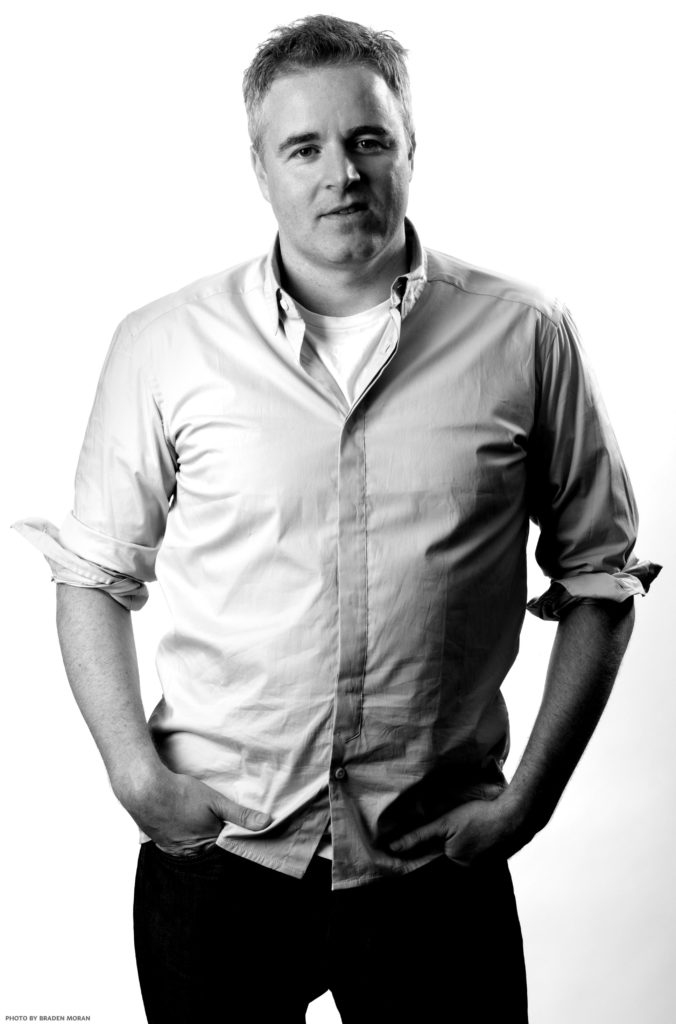
Jock: It's something I had to figure out early on.
The legacy of Batman enormous. One of the strengths is that he can be any number of things: a dark detective, an action hero, a horror figure, an ethereal spirit of the night, and so forth. So for this Batman story, I did have to figure out what he would be for me.
For a bit, I was keen on Batman being a 'force of nature' type thing, but it turned into a personal story. He's, I would say, an amalgam of all the things I love about Batman.
Get the best comic news, insights, opinions, analysis and more!
He's still Bruce under the mask. When we first meet EMP, Batman is compassionate; he wants to help. But EMP is a massively volatile character, and he needs to be contained. In the second issue, Batman shows his heart and him being a morally strong, father-figure type of character.
Newsarama: Does knowing you'll be drawing a script you're also writing affect what you decide the story is going to be?
Jock: You're right, I do get to choose what I draw, and I try and use splashes where I can, but I also know I enjoy effectively getting the story across as well.
Newsarama: You mentioned EMP, a new villain you created for this book. Is EMP his name, or is it a classification (in real life, EMP is short for Electro-Magnetic Pulse)? Tell us about him.
Jock: EMP is a holding name. The blast that caused the blackout was EMP.
Originally I called him Edward M. Pressler - EMP for short - but that's not in the book. He's a new character - a metahuman that feeds on energy, and who has certainly done villainous things. But as we'll reveal in the story, his life is more tragic than 'just' being a dangerous villain. Some of the events happened five years ago, some happen in the first issue.
There's something to him that makes him a slightly tragic character. He's like a moth to a flame - a moth that gets juiced up and can't really control himself. In the second issue, Batman uses a portable device that calms him down, and begins to learn why he is the way he is.
He's a totally new character, and came right there from the original germ of the idea I had and developed into the story I wanted to tell. I really like him, and find him really interesting.
I hope he has real potential going forward. Even when I first started drawing him, I knew exactly what he was going to look like.
Newsarama: A character named 'EMP' first reminds me of the WildCATS character 'Emp,' but I know that's not related. What it now reminds me of is an issue of the Losers by you and Andy Diggle, which used an EMP device. That got me really excited, thinking about some of that Losers-era Jock style coming through.
Would you say there's a little bit of the Losers swagger in Batman: One Dark Knight?
Jock: First, the EMP blast in the Losers didn't play into my story for Batman: One Dark Knight.
When we were doing Losers, it was a grounded action tale - but we wanted to make it larger than life. One of things I loved doing was bringing energy to every page. That sort of comics from my 2000 AD background, and I think one of the things I did with Losers was the realism - it was gritty and real. Andy had a bombastic quality to his scripts as well - if we were going to show it, we had to make it big. That idea has never gotten away from me, including in Batman: One Dark Knight.
I wanted this to feel grounded, real, gritty (although I'm not a hue fan of that word). I wanted it to feel tactile; Gotham is a place and that's exciting for me to portray.
Issue one is has a chase across the rooftops, and shows EMP as this 'larger than life' character. In the second issue, we break it right down to the bare essentials, with only Batman's fists to see him through. It's violent, and hard-hitting.
Newsarama: From the description of Batman: One Dark Knight, it seems like Batman will have a real struggle just to cross Gotham City due it it being a heatwave and there being a blackout - like a John Carpenter's version of The Warriors or something. What are the obstacles in the way of Batman making it to Blackgate Prison?
Jock: Batman is cut off. Due to EMP's blackout, he can't use any of his toys - the Batmobile, the Batwing. He doesn't have Alfred in his ear, and he's effectively abandoned in Gotham City, in the middle of a blackout. It feels like the entirety of Gotham is closing in on him.
I wanted to strip Batman down, and one of the things we find out is what is at his core. The blackout is a hindrance, but through it we learn Batman has almost forgotten that he operates best in the dark. Even now he has trouble navigating due to his reliance on tech - but he's now stripped of that.
There's now insurmountable odds and Gotham is bearing down on him, so the question because 'Who is he then? And how does he respond to that?' That was a big part of my take on the story - finding Batman the brawler. He's only got his fists and his mind - is that enough to get him and EMP to safety before something much worse than an electrical blackout happens. The deadline is dawn, so even time becomes a pressure point.
Gotham is in disarray due to the blackout; gangs are taking control, there are barricades going up between districts, and stuff is on fire. Like the references you said, it's kind of like a '70s movie.
I'll even have a map showing where he is, and where he needs to go, so readers understand geographically what he's attempting.
Newsarama: Batman: One Dark Knight is being published in the slightly larger 'Prestige Plus' format, which I'm told means different-sized art boards for you to draw on. With you writing, drawing, and coloring this, what has that done for you, and how you do the story page by page, panel by panel?
Jock: You entirely have my number. DC sent these boards - they're much bigger than regular boards.
I was getting to the point with the traditional 11"x17" boards that I was drawing more than was ending up on the printed page. This bigger drawing area gives me more room for big marks, expressive lines, and indulging myself.
I love the extra space. I want Gotham to feel thriving, and these bigger pages give me more room to do that.
Newsarama: In reading the description of Batman: One Dark Knight through the eye of a former artist myself, it seems like you as a writer set yourself up well to draw some impactful and fun things. What was the artist side of you demanding the writer side put into the script, so you could draw it?
Jock: The main one is Gotham itself. I wanted Gotham to be a character, so hopefully setting myself up for some full shots of the city. Having extra room with the larger pages, I was able to bring out qualities that otherwise I might be too constrained to attempt.
On a more serious note, as a writer/artist this allows me to hit more subtle moments and beats that a collaboration may not bring. I hope the action and the situations prove to be direct and evocative.
Going back to your question, I don't have any particularly shots in mind... Although, as I say that, I do love to draw the Batmobile blowing up a bridge.
Newsarama: You've done several high-profile Batman stories in your life, but all were with you working off scripts by either Scott Snyder or Greg Rucka. You've written comics before, but this one - dealing with probably the most popular superhero in all of comics, who is owned by someone else - seems like a doozy. Did you get any tips or take any inspiration from other writers in handling this prestigious Batman story as a writer?
Jock: Yeah... I mean I've certainly leaned on friends such as Scott, and Andy Diggle. Lee Garbett and I have spent a lot of time together, and he's helped figure out the storyline. He's been a massive help with me there.
I have to say though, a lot of my favorite stories come from the way the creator defines his own style. Frank Miller's Dark Knight Returns is so implicitly Frank.
To me, I've been very lucky to work with some amazing writers. So what am I going to do? What am I going to bring to this? Luckily, this is a standalone Black Label book, which I hope to do more of. I don't have to worry about continuity or crossovers so much, and can focus on standalone stories - which is my favorite type of comic. I like the idea of being able to hand it to anyone and they don't necessarily have to know anything about the history of the character to read and enjoy it.
So again, I'm lucky to have talented friends. Scott Snyder gave me great advice - trust my instincts, and go for it.
Newsarama: Last question, then. You've drawn Batman numerous times - for comics, for covers, and even some movie projects. What are the key things that every great Batman illustration needs - what are the bare bones elements you need to have to make it quintessentially Batman?
Jock: A strong silhouette, brilliantly-shaped eyes on the cowl, and most importantly his cape. It should be alive. I love pushing the cape.
Keep track of this and all the new Batman comics, graphic novels, and collections in 2021 and beyond.
Chris Arrant covered comic book news for Newsarama from 2003 to 2022 (and as editor/senior editor from 2015 to 2022) and has also written for USA Today, Life, Entertainment Weekly, Publisher's Weekly, Marvel Entertainment, TOKYOPOP, AdHouse Books, Cartoon Brew, Bleeding Cool, Comic Shop News, and CBR. He is the author of the book Modern: Masters Cliff Chiang, co-authored Art of Spider-Man Classic, and contributed to Dark Horse/Bedside Press' anthology Pros and (Comic) Cons. He has acted as a judge for the Will Eisner Comic Industry Awards, the Harvey Awards, and the Stan Lee Awards. Chris is a member of the American Library Association's Graphic Novel & Comics Round Table. (He/him)
